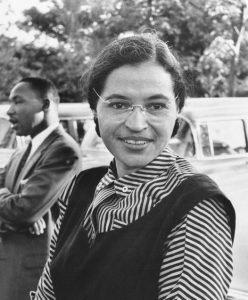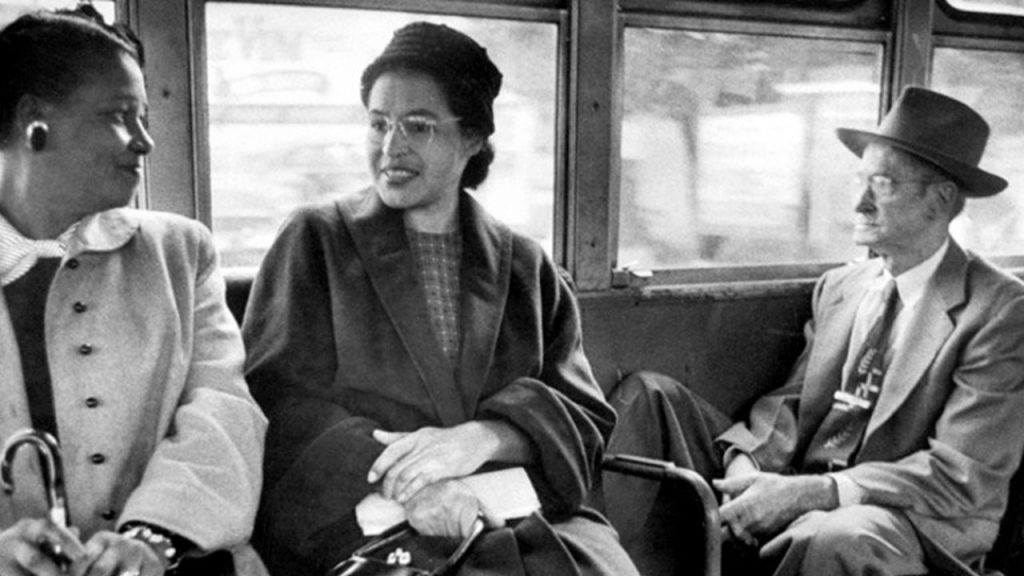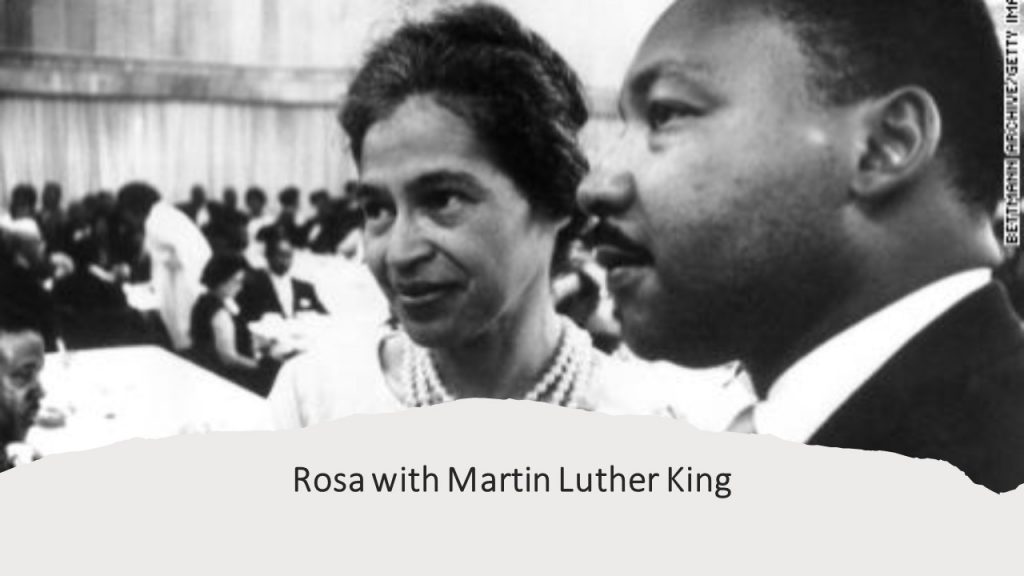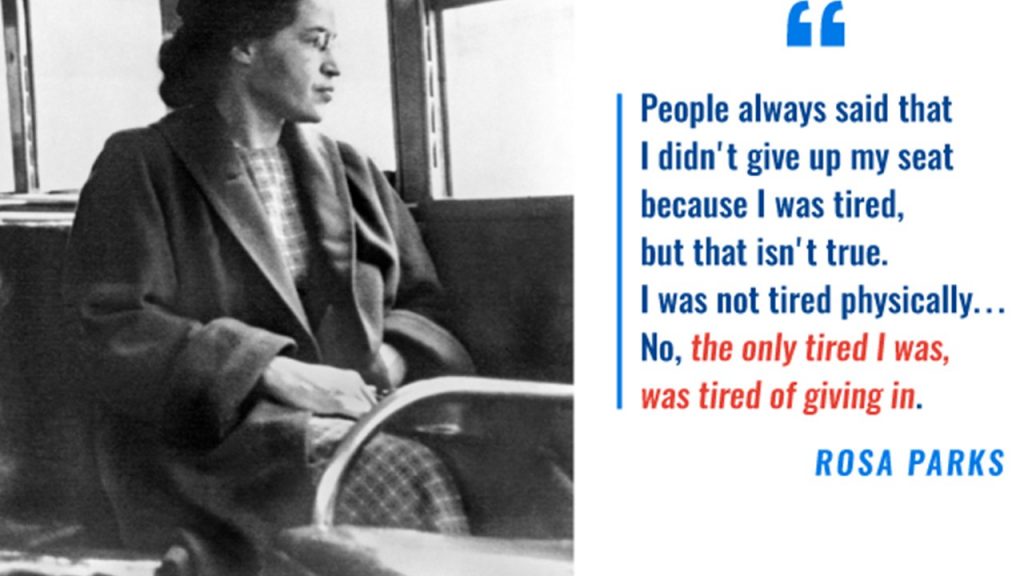Intimations
Eagles Wings Trust- Today in our Zoom Service we heard from Mike Cordiner about the incredible work that this amazing charity is doing in Dundee, helping those who are homeless, in the midst of or recovering from addiction, and share the love of God. Click here to view their facebook page.
JAM Kids’ focus: The Virtual Sunday School. Here is the link for Sunday 7 February 21 Virtual Sunday School: Bible Quiz.
JAM young adults Ignite Live have a separate programme at 7pm tonight. Please contact Gary Torbet on garytorbet@btinternet.com for more details of today’s programme.
Baptist Union of Scotland National Prayer Livestream The monthly prayer livestream takes place next on Sunday 7 February, 2021 7.00–7.30pm. Click here to watch.
Call to worship
24 Lord, You have made so many things!
How wisely You made them all!
The earth is filled with Your creatures.27 All of them depend on You
Psalm 104.24, 27-28
to give them food when they need it.
28 You give it to them, and they eat it;
You provide food, and they are satisfied.
Our opening song of praise and worship is God of Immeasurable Might:
Opening prayer
Heavenly Father,
Psalm 8:1 declares O Lord, our Lord, how majestic is Your name in all the earth! Thank You that You are the Lord of heaven and earth. We so easily can be overwhelmed with the challenges before us and the difficulties that cross out path at the present time, but You are from eternity to eternity the same, our amazing God. We thank You for all that we have received for our daily needs in the past week.
It is so easy at times like this to become despondent or frustrated by the difficulties small or greater that come our way, however, we want to bring them all to You today. Our blessings and our problems and to acknowledge that we come as we are to worship You today. We ask that You would speak into our lives from Your Holy Word and minister to us in accordance with our needs. Please forgive us our sins once more and fill us with Your Holy Spirit for the new week that lies before us, in Jesus’ name we pray, Amen.
Let us say together the words Jesus taught His disciples when He said:

All-Age Talk – Isdale Anderson
Thursday 4 February was celebrated as Rosa Parks Day.
Who was Rosa Parks?

Rosa Parks was a black lady who in 1955 lived in the city of Montgomery in Alabama which is in the south of the USA. At that time black people were treated very differently from white people. One of the ways that they were treated differently was on the buses.
Montgomery had single decker buses with a door at the front and another door at the back. If you were a black person getting on a bus, you had to go up to the front door, pay your fare to the driver, then get off again and walk round to the back door and get on and find a seat in the back half of the bus which was where black people had to sit. On a bus the front half was for white people and the back half for black people. Sometimes the bus drivers used to drive away after a black person had paid their fare but before the black person had got back on the bus.
At the On December 1, 1955, Rosa was travelling home on the bus after a long day’s work at a Montgomery department store. She took a seat in the first row of seats set apart for black passengers. It was a busy time of day with a lot of people going home from their work and soon all the seats in the bus were taken up. As there were no more seats in the section for white passengers, some white passengers were standing in the aisle. So the driver of the bus stopped the bus and told Rosa and three other black passengers to stand up and to give their seats to one of the standing white passengers. The three other Black passengers did as they were told, but Rosa said no. She’d paid her fare. She didn’t see why she had to give up her seat just because she was a black person. That wasn’t fair.
Because Rosa wouldn’t give up her seat, the driver called for the police who arrested her. She was taken to police headquarters. She was treated like a criminal and had her finger prints taken, and her photograph taken. She was released later that evening after being told that she would have to go to court. She was found guilty of disobeying a city rule and had to pay a fine.
Montgomery Bus Boycott
However that wasn’t the end of the story. Because Rosa had been brave enough to say NO to an unfair rule, she had encouraged other black people in the city get the unfair rule changed. Some of the leading black leaders in the city got together. They were led by the minister of one of the Baptist Churches in Montgomery. Anyone know his name? Martin Luther King! They decided that they needed to do something to show that the rule on the buses was unfair. So they decided to do what? Not ride on the buses! This meant that all the members of the black community were asked not to use the buses until the bus company changed its rules. Now this was not an easy thing to ask. A lot of the black people did not have cars and they couldn’t afford taxis so it meant that they had to walk everywhere. That meant for some people a walk of up to 20 miles every day to and from work. But they stuck to it. Do you know how long for? Over a whole year! (381 days!)
Eventually the most important court in the United States – the Supreme Court – made the decision that to make people sit in different seats on the buses as against the laws of the United States and would have to be stopped. So the rule was changed and black people were allowed to sit wherever they liked on the buses. All because one ordinary lady said no. This is law is unfair. It’s unjust and I’m not going to stand (excuse the pun!) for it anymore.
What gave Rosa the courage to do what was right? She was the only black passenger who refused to give up her seat. Rosa was a very devoted Christian. She said about that day on the bus “I instantly felt God give me the strength to endure whatever would happen next. God’s peace flooded my soul and my fear melted away. All people were equal in the eyes of God and I was going to live like a free person.”
There’s a great verse in the Old Testament book of Micah Chapter 6 v 8

There are still lots of unfair situations in the world – eg people of different skin colours can still be treated unfairly, so with poor people, homeless people as Mike has reminded us. At school children can get picked on because they are different or simply very shy and quiet. It’s not easy to speak up for them as you might get picked on as well. It’s not always easy to do the right thing and to take a stand for what’s fair – or in Rosa’s case – take a seat. But God calls us to be people who want what is fair and wants us to treat people with kindness. Let’s take inspiration from the example of Rosa Parks and do just that.
Slides used for Talk:
Our next song is ‘Great is the darkness’
Prayers for others
Heavenly Father,
We come before you once again at this the start of another week conscious that so many of us are quite weary of the ongoing challenges of daily life that seem to be ongoing without an obvious end date. We are so grateful for the progress in the last week of the rollout of the vaccines in our country, thankful that we can see in the future an end to the restrictions that we have all had to live with in most of the last year. We give thanks for the many scientists and health service personnel whose work has contributed to this positive development. We do pray for the wider issue across the world of how vaccines can be shared fairly across the nations and are grateful for the work of the Red Cross and the World Health Organisation in taking a lead on this subject.
We continue to remember in our prayers those individuals and families directly affected by this pandemic and pray for your comfort for those families who have been bereaved by the loss of loved ones for whatever reason in the recent past. We pray for strength for health service and social care workers as they assist those who have most serious health problems together with the most vulnerable members of society in the later years of their lives. We remember too other people struggling to keep their businesses afloat or who are finding it incredibly difficult to carry out the day to day tasks that under normal circumstances they would manage without too much difficulty. We pray that individuals struggling with loneliness would be able to find Your peace and assurance at this time.
We also pray for parents, teachers and children who continue to embrace the challenges of online home learning and teaching. We pray for patience, creativity and a sense of calm to surround this unusual learning environment. We give thanks that in November 2021, the World Climate Change summit, CoP26, meets in Glasgow. We pray for Martin Hodson, the General Director of the Baptist Union of Scotland as he meets online this week with other Church Leaders in Scotland to consider how best churches can contribute to this important summit and the importance of creation care.
We give thanks for the many churches that are providing online Alpha and Christianity Explored courses available to help enquirers find out more about the Christian faith. We pray that many people across Scotland would come to a saving faith in Jesus and put their trust in Him.
We pray for the following chaplain and churches:
John Craib (Chaplain, HMP Low Moss) – We give thanks that Low Moss has been affected only modestly by the C19 virus. Most of what has occurred has been among staff. The prisoners have mostly been accepting of the modified regime with fewer visits, less work and slower progression to release and have handled the pandemic with remarkable calm. We give thanks that many prisoners have responded positively to the chaplaincy services – currently shown by video on their cell TVs and the one to one meetings in their halls. We pray for an ongoing atmosphere of calm in the jail, but like wider society, a gradual return to ‘normal’ as the external lockdown lifts.
Brae BC – We pray for the church fellowship at Brae in Shetland in the far north of our country. We pray for opportunities this week for the church members to hold conversations with people on the island who don’t know Jesus yet.
We come to pray for the needs in our own congregation:

Heavenly Father,
We are pleased to hear of the encouraging medical report this last week for Margaret, Ann W’s sister. We thank You that she has come through a very difficult time. We pray that she may continue to make further progress in her health and strength.
We also continue to pray today for Henry and Sheena G and their family after his mother’s death yesterday. We are conscious of so many people with ongoing health needs and remember particularly the Rice family, Fiona and Frank K, Dorothy and Jim G at this time.
We continue to pray for a restoration of health for other members of our congregation or members of their families…
We continue to pray for anyone else with ongoing health conditions and bring them before You now…
We pray for the people whom we cannot visit in residential care, and others who are at home on their own…
We pray for those who have been bereaved and ask Your comfort for them …
We now pray silently for anyone else known to us who is in need of our prayers at this time…..
We pray also for our own needs…
We bring all these prayers before you in Jesus’ name,
Amen.
Bible Reading II Corinthians 2:14 – 3:6
14 But thanks be to God, who always leads us as captives in Christ’s triumphal procession and uses us to spread the aroma of the knowledge of him everywhere. 15 For we are to God the pleasing aroma of Christ among those who are being saved and those who are perishing. 16 To the one we are an aroma that brings death; to the other, an aroma that brings life. And who is equal to such a task? 17 Unlike so many, we do not peddle the word of God for profit. On the contrary, in Christ we speak before God with sincerity, as those sent from God.
Are we beginning to commend ourselves again? Or do we need, like some people, letters of recommendation to you or from you? 2 You yourselves are our letter, written on our hearts, known and read by everyone. 3 You show that you are a letter from Christ, the result of our ministry, written not with ink but with the Spirit of the living God, not on tablets of stone but on tablets of human hearts.
4 Such confidence we have through Christ before God. 5 Not that we are competent in ourselves to claim anything for ourselves, but our competence comes from God. 6 He has made us competent as ministers of a new covenant – not of the letter but of the Spirit; for the letter kills, but the Spirit gives life.
Before we come to listen to God’s Word let us sing: ‘Will your anchor hold in the storms of life’
The Message
II Corinthians 2:14 – 3:6 In what or in whom is your security?
Introduction

Many of us as children over the last century had a teddy bear or dolly; some of us though had a piece of material as a ‘comfort blanket’ or reassurance to take with us when we went to bed or in some cases even took with us when we went out. Of course by the time we went to school we chose to leave it at home, though it might be surprising to learn how many of these ‘friends’ were taken with students starting their first year at university.
Of course we all understand why we choose to do this and many of us as adults will still somewhere in the house have our old friend that probably looks a bit worse for wear after all the attention it received in our childhood. However, as we grew up our relationship with out teddy changed. There came a point in our childhood when we knew that no matter how much we loved it, our security and hopes for the future had to be grounded in something or more accurately someone else.
For the vast majority of children brought up in loving homes their parents or parent provided this anchor for their lives. We thank the Lord for the blessing of good parents as this is not something that can be taken for granted. It is only when you hear the stories of other people who did not have that love and care we took for granted that we begin to appreciate how fortunate we were. The world in which we live can be a lonely place. It can often be experienced as a place where many people love to criticise and diminish the value of their peers, rather than seeking to encourage and build them up. As a result, many of us at times can feel battered and bruised by our treatment at the hands of other people.
Therefore, this question: In what or in who is your security is particularly important to address. If we are simply drifting through life then we will heed the voices that shout loudest; we will yield easily to social pressures to conform to whatever are the latest fashions, values or opinions. A person in this place might feel quite insecure inside themselves, not wanting to express the wrong opinion or behave in an inappropriate way, without being sure why they ought to stand for this or that cause.
In the first two centuries of the existence and growth of the Christian Church the majority of its members were enslaved men, women and children, or other individuals who lived a precarious existence with very little material security over employment or the means to feed themselves or their families. Of course there were a small number of relatively wealthy Christians in whose homes the local congregations met in the towns and cities where churches had been planted throughout the Roman Empire. But they were very much the exception. In the twenty-first century, in the places where the Christian Church is growing, it is most often amongst the poor and marginalised communities that the good news of the gospel is received with real joy.
Our question, based on Paul’s statements in these verses in II Corinthians 2:14-3:6, is deeply challenging. In the Western world many of us are fortunate to own a home or have a secure rental agreement so we have a guaranteed place of shelter. Likewise, a majority of us have a relatively secure form of employment and therefore a regular income, or a guaranteed pension income in retirement.
In addition, although it can be a struggle to access some services at the present time in the virus pandemic, we are incredibly fortunate to have a National Health Service where the costs of the vast majority of treatments are paid out of collective funds raised through taxation. Yet even with these and other blessings most people deep down are seeking something more to bring significance and purpose to their lives. There is an implicit recognition deep inside ourselves that we work to live, rather than live to work – even if the opposite seems to be true for many in employment under the heavy work pressures of the last ten months! What does Paul have to say to us from this passage of the Bible?
1. Maintaining a sense of perspective (II Corinthians 2:14-17)
(a)Triumphal or triumphalist? (II Corinthians 2:14a)But thanks be to God, who always leads us as captives in Christ’s triumphal procession… We live in a culture where our image can be so important. The pressure, for example, on our national politicians, and many other people, to dress appropriately for their work can be very high, especially when journalists are making regular comments about what is being worn, especially for women.
Social media ‘influencers’, a mysterious category of people that appear to have significant influence over the choices of their many ‘followers’ are paid salaries or given free samples of clothes or other accessories by well-known companies to promote particular brands. I don’t expect that this is a major issue or challenge for readers or hearers of this message. However, Paul does raise an important point for followers of Jesus, then and now about the way we live our lives.
Paul wants to address the way a group of Jewish followers of Jesus were presenting themselves to this congregation in sharp contrast to himself. They made a dramatic entrance boasting of the success of their work and wanted to lead them in a very different direction to the one Paul had been advocating through his preaching in their midst and his letters when based elsewhere.
They had apparently been saying that Paul must have been a failure in ministry having to leave so many communities in a hurry. There had to be something wrong with a man who attracted so much opposition, even apart from the beatings and terms of imprisonment he had endured. He was also rather short in stature and to be blunt unattractive in physical appearance and in his preaching his tone was monotonous and his content rather unexciting, compared to what they had to offer (II Corinthians 10:10). In II Corinthians chapters ten and eleven Paul will address this problem in more detail, but here he points out the principle that is at stake.
Paul paints the picture of the triumphal procession of a Roman General through Rome at the end of war bring the captured objects seized from the conquered country, followed by many of its soldiers and citizens in chains, with the captured leader or a leading figure from that country to bring up the rear in humiliation. These events were rare but incredibly memorable for those who witnessed them. Apparently the most spectacular one in the first century AD came in AD71 when the Roman Emperor Vespasian and his son Titus rode through the streets of Rome in the presence of vast crowds of citizens who turned out to watch the spectacle. This conquest celebrated the victory in the war against the Jews in Judea that resulted in vast numbers of deaths and the majority of the remaining Jews seized for sale as slaves. It was not until 14 May 1948, two thousand years later, that a Jewish state was once again proclaimed in that land.
The question that stands out here is this: In view of Paul’s statement in II Corinthians 2:14a, where in this heavenly procession does Paul view himself and other Christians? Is he viewing himself, like these other religious teachers who have come to Corinth as a person to be honoured and celebrated or does he view himself as one of the people following submissively behind Christ in His triumphal procession? Our answer to this question will have a major bearing on how we view ourselves and how we understand our calling as witnesses to Christ as a congregation in the world today.
The other ‘apostles’ who had been visiting Corinth and comparing Paul most unfavourably with themselves undoubtedly would have used triumphalist language speaking of their powerful ministries and boasted about the miraculous impact of their prayer ministries. In the modern day a glossy business card pointing to an impressive social media profile would have been added to enhance their credentials. They would have seen themselves as walking with Christ in the victory parade and being acknowledged to a lesser extent for the great work they were doing.
There are Christian leaders in each generation who go down this route seeking to be high profile in the media, at conferences, or in sales of books and other merchandise. I don’t want to mention any names here, but it is profoundly sad that some incredibly talented preachers of the gospel are no longer exercising the ministry they started so well. We need to pray for those so prominently in the spotlight, as the pressures and temptations they face may be much greater behind the scenes than we ever imagine. But we all need to pray for one another that the Lord will keep us on track in His service.
By contrast, Paul sees himself and his ministry team members as your servants for Jesus’ sake (II Corinthians 4:5); as one who is weak (II Corinthians 11:29); he goes further and declares in II Corinthians 12:11: I have made a fool of myself, but you drove me to it. I ought to have been commended by you, for I am not in the least inferior to the ‘super-apostles’, even though I am nothing. When writing this message my mind turned to think of some of the most gifted Christian leaders I have had the privilege of meeting over the years.
Those who by any human reckoning had accomplished great things never needed to boast about it. Their humility and Christ-centeredness stood out so clearly. Like Paul here, they too would have seen themselves as willing ‘captives’ of the Lord Jesus Christ who had yielded their lives to serve Him. In Paul’s case this surrender came on the road to Damascus when he had a personal encounter with Jesus (Acts 9:1-19). Jesus expressed it this way in Mark 8:34b: Whoever wants to be My disciple must deny themselves and take up their cross and follow Me.
In secular terms it seems quite odd to live this way! Many people will argue that if you are not willing to promote yourself no-one else will! Yet, by contrast, Paul would write these remarkable words in II Corinthians 12: 9b-10: Therefore I will boast all the more gladly about my weaknesses, so that Christ’s power may rest on me. 10 That is why, for Christ’s sake, I delight in weaknesses, in insults, in hardships, in persecutions, in difficulties. For when I am weak, then I am strong.
How could he do this? Because His security was in Christ; it was his primary desire to please the Lord Jesus in the way he lived. He wanted other people to say after he had preached or laid hands on someone for healing – what a great God and Saviour Paul served, how wonderful He is, rather than how amazing was the intermediary. A servant’s calling is to represent his master. It is extremely difficult to live this way. We must be honest about that. How do you present yourself at interview for a work position when you know many other candidates will oversell their credentials? I am well aware that this has happened time and again in Christian organisations where someone far better qualified who spoke modestly about what they brought to offer was overlooked in favour of an eloquent candidate who magnified their limited experience on the day.
We might want to argue that an interviewing panel should see through that, and of course many properly prepared will do so, but it was not just at Corinth that this kind of difficulty has arisen. However, a Christian man or woman who is genuinely Christ-centred and who has their security in Him will be enabled by God’s grace to navigate these difficult situations with the help of the Holy Spirit.
(b) A pleasant or unpleasant fragrance? (II Corinthians 2:14b-16) … and uses us to spread the aroma of the knowledge of Him everywhere. 15 For we are to God the pleasing aroma of Christ among those who are being saved and those who are perishing. 16 To the one we are an aroma that brings death; to the other, an aroma that brings life. And who is equal to such a task?
We have to admit that some scents or perfumes are appealing or repelling depending on your point of view. Here the events of the Roman victory parade are in view where the burning of a particular incense along the victory route would be appealing to the victorious army but nauseating to the defeated foes plodding along in their chains. What is it that Paul is implying by the use of this imagery here? As the smell of the victory incense was all pervasive in the vicinity of the parades so he desires that Christians will share the good news of the gospel ‘everywhere’ so that it cannot be missed. He wants every person as far as possible to hear about Jesus and the gift of eternal life.
This will not happen by accident. We have to use all appropriate means to accomplish this goal. In our contemporary context, we don’t when permitted simply share the gospel in Sunday services or age-specific meetings in church premises as only a small proportion of our local community in pre-pandemic times attended services or events in churches. We have to be creative in sharing the good news through personal witness and invitations; we do that through literature distribution; we use the increasing opportunities online. However, Paul reminds us that some people will be attracted to find out more about the gospel, but others will be repelled. They are very happy with their lives as they are and don’t want God in them. They certainly don’t want Jesus to be Lord over their lives.
(c)The nature of our calling (II Corinthians 2:17)Unlike so many, we do not peddle the word of God for profit. On the contrary, in Christ we speak before God with sincerity, as those sent from God.
As people called to live Christ-centred lives, looking to Christ, growing in Christ and sharing Christ, we remind ourselves why we are doing what we do for Him. It is not about me. We will rejoice when someone else leads someone to Christ or another Bible-believing church sees people coming to faith in Him. It is not just about us personally or our local church, but it is all about giving glory to Jesus. We want to honour Him in everything we do. What we do and how we do it matters. If Jesus is glorified and honoured then we cannot be more joyful. We can never pretend this will ever be easy to live. On the contrary, living a God-honouring life can at times be incredibly hard. But through the enabling power of the Holy Spirit we can exercise the calling entrusted to us.
2. Who gives you a reference? (II Corinthians 3:1-6)
(a)Our sources of commendation (II Corinthians 3:1-3)
Are we beginning to commend ourselves again? Or do we need, like some people, letters of recommendation to you or from you? 2 You yourselves are our letter, written on our hearts, known and read by everyone. 3 You show that you are a letter from Christ, the result of our ministry, written not with ink but with the Spirit of the living God, not on tablets of stone but on tablets of human hearts.
Have you ever needed a reference from someone or written one for another person? Some of us may say ‘no’ I have never written one or needed one produced on my behalf. However, many of us will say ‘yes’, that we needed them to accompany job applications or to act as a guarantee for us as to our character or our competence. A smaller number of us will have written them for other people. It is very difficult, with respect to job references, to know what weight, if any, is given to the submissions from referees. I suspect too often it is a box-ticking exercise, but there may be some occasions where a reference can make a crucial difference.
In the Early Church, and in the ancient world until fairly recently, people often carried with them letters of reference to authenticate who they are and the credentials they claim to hold. Here in Corinth where there is a clear difference of theological convictions and practices between Paul and these other unnamed ‘apostles’, it is a real problem for the new Christians in that congregation as to who they listen to the most.
The new guest preachers bring with them impressive letters of commendation as to their giftedness and calling to Christian ministry, almost certainly from some brothers in Judea, possibly even from Jerusalem. These so-called referees are unknown to the local Christians in Corinth, but should the letters of reference be taken at face value? But where does that leave Paul? He didn’t bring letters of commendation when he came to Corinth. After all a pioneer church-planter has no-one to give the letters to in the first place! It is possible that someone in the church had the cheek to ask Paul if, by chance, he also had letters of reference commending him so they could be compared with these other guests!
Paul in any case has a brilliant comeback to any such request. God used him and his mission team to evangelise and plant the first Christian Church in Corinth and the people now in that church were converted through their witness. This is an excellent reference for a church-planter. In that context two thousand years ago Paul’s actions more than backed up his preaching. The other claimants who opposed him could make brilliant speeches and have amazing references provided by their friends, but they had nothing to show in practice to demonstrate what they had done in Christian service.
The Bible reminds us clearly that as well as spiritual gifts for various ministries, there is the challenge of showing the evidence through our lives of the fruit of the Spirit (See Galatians 5:22-23). The person who is ‘walking the walk’ of faith will inevitably show evidence of these character qualities in their lives. Paul’s evidence of his calling as the apostle to the Gentiles was demonstrated in the lives of the people who came to faith through his witness and the churches planted in those remarkable three decades.
Many years’ later people were talking about what he had accomplished. Polycarp, the pastor or bishop of the church in Smyrna (modern day Izmir in Turkey) who died in 156AD, made this reference to Paul in a letter to the members of the church at Philippi: as those ‘among whom the blessed Paul laboured, who were his letters in the beginning.’ [Polycarp, Epistle to the Philippians, 11] Paul was not against Christian leaders in the Early Church providing letters of commendation.
It was a standard practice to attempt to safeguard churches against welcoming false prophets and teachers in their midst. In his letters to the church at Corinth, for example, Paul had recommended they welcome Timothy his colleague to work amongst them (I Corinthians 16:10); in II Corinthians 8:16-19 another colleague Titus and his unnamed colleague are commended to them. In 451AD, at the famous Christian Council of Chalcedon (modern day Kadikoy in Turkey), number thirteen of thirty rules or canons issued to all the churches, made it mandatory that itinerant preachers of God’s word must carry with them a letter of commendation as a preacher from their city provided by their own bishop.
It is important to be clear that Paul was strongly in favour of accountability to the churches by those set apart to positions of leadership, especially those set apart to wider ministries outside the context of their local church. However, most important of all was our accountability to God that was demonstrated by the evidence of our commitment to effective Christian service. We are all different in our gifting and opportunities for ministries. Our security in who we are is in seeking with a sincere heart to live for the Lord in the location He has placed us. An effective local church needs everyone in its ranks to play their part in its mission and ministries. He knows us better than we know ourselves. May each one of us be regular in attendance at worship services where possible, committed to reading and reflecting on the Bible and in prayer, faithful in Christian service and seeking to share our faith with others who have yet to come to faith in Jesus.
(b) Sufficient for ministry? (II Corinthians 3:4-6) 4 Such confidence we have through Christ before God. 5 Not that we are competent in ourselves to claim anything for ourselves, but our competence comes from God. 6 He has made us competent as ministers of a new covenant – not of the letter but of the Spirit; for the letter kills, but the Spirit gives life.
However, the apostle does not want anyone to misunderstand what he has written so he qualifies his remarks in these verses. Our confidence or security is in Jesus Christ. We are saved through His amazing grace and mercy. We are sustained and empowered for Christian service through the gift of the Holy Spirit at work in our lives. It is ultimately not our sheer hard work that makes the difference, though it does help! But it is God working in and through ordinary people for our good and for His glory. Down the centuries it is a familiar pattern of God’s servants citing their inadequacy to accept the call God has given to them. In the Old Testament this list includes Moses in Exodus 4:10-17; Gideon in Judges 6:15; Isaiah in Isaiah 6:5 and Jeremiah in Jeremiah1:6.
You are in good company if you feel inadequate as a witness in sharing your faith. There will always be individuals who will criticise and suggest our inadequacy for the task. In August 1955, a certain Anglican Canon H.K. Luce of Durham wrote a letter to the Times newspaper on the unsuitability of an American Baptist preacher called Billy Graham for the task of preaching some evangelistic messages to students at Cambridge University that year. [Timothy Dudley-Smith, John Stott: The Making of a Leader, p. 358]
He was not alone in criticising Graham’s suitability as a preacher. However, with the encouragement of supporting Christian clergy and lay leaders in Cambridge, God overruled the critics and a good number of students professed faith in Jesus. God delights to use ordinary people in His service who are available to Him. Oswald Chambers, a well-known Bible teacher of a century ago once stated: ‘All through history God has chosen and used nobodies, because their unusual dependence on Him made possible the unique display of His power and grace. He chose and used somebody’s only when they renounced dependence on their natural abilities and resources.’ [Many online citations, original source unknown]
In what or in whom is your security today? I hope and pray it is in Jesus Christ. Through Him and by the work of the Holy Spirit within us we can accomplish all that God wants us to do in His service. Each of us is unique. God works in us and through us personally. We come by faith to Him for salvation. In exactly the same way by faith we seek to live for God each day of our lives in whatever sphere of service is open to us. I close with some other words of Paul from his letter to the church at Philippi. I can do all things through Him who strengthens me (Phil.4:13) Amen.
Our song before we come to communion is: ‘Blessed be Your name’
The Lord’s Supper
Jesus invites all Christian who have committed their lives to follow Him to participate in this act of worship. The apostle Paul wrote these words of Scripture in I Corinthians 11:23-26 to guide our observance of Communion.
For I received from the Lord what I also passed on to you: the Lord Jesus, on the night He was betrayed, took bread, 24 and when He had given thanks, He broke it and said, ‘This is My body, which is for you; do this in remembrance of Me.’ 25 In the same way, after supper He took the cup, saying, ‘This cup is the new covenant in My blood; do this, whenever you drink it, in remembrance of Me.’ 26 For whenever you eat this bread and drink this cup, you proclaim the Lord’s death until He comes.
Prayer: Choose your own words of prayer to give thanks for the bread and wine that represent the costly gift of His body and blood for us.
Take the bread: Jesus said: ‘This is My body, which is for you; do this in remembrance of Me.
Take the wine: Jesus said: This cup is the new covenant in My blood; do this, whenever you drink it, in remembrance of Me.’
Our closing song is: Be thou my vision
Closing Prayer:
Thank you Lord that our security is found in You. We are dependent on You for all we need to live through these difficult times. We thank you that in the good times and the tough You never leave nor forsake us. We enter this new week with confidence because You will go with us each step of the way, in Jesus’ name Amen.
Benediction: The Grace














